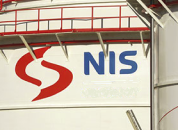
Corporate Governance Code
In accordance with experience and best practice in this field, NIS has adopted its own corporate governance principles that are incorporated in the Corporate Governance Code of NIS j.s.c. Novi Sad adopted on 27 January 2014
The Code establishes the principles of corporate practice and organizational culture in line with which the persons responsible for the corporate governance of the company shall act, especially with regard to the rights of the company’s shareholders, framework and operation of company bodies, supervision, and publicity and transparency of the company’s business.
The main goal of the Code is to introduce good business practices and set high standards of corporate governance in order to provide a balance of influences among the persons responsible for corporate governance within the company, to ensure the consistency of the control system and increase the level of trust among shareholders, investors and other interested parties, all with the purpose of enabling long-term and sustainable development of the Company.
In order to maintain the high level of corporate governance culture, NIS has invested significant efforts in ensuring the constant development of the corporate governance system and in upgrading the Code in accordance with internationally recognized standards and best practices in this field.
The Board of Directors, by the means of a Statement on the Implementation of the Corporate Governance Code, informs the Shareholders’ Assembly about practices which the company applies in accordance with the Code, on the compliance of the organization and activity of the company with the Code, and provides an explanation regarding any possible non-compliance or deviation from the principles contained in the Code at each of its regular meetings.
Corporate Governance Code of NIS j.s.c. Novi Sad (pdf, 1.1Mb)
Corporate Governance Report for 2024 (pdf, 0.9Mb)
(part of the Annual Report for 2024)


